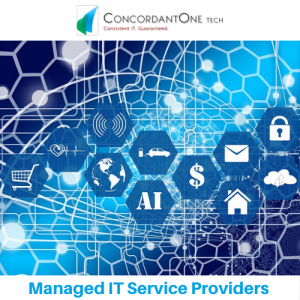Top 10 Benefits of Hiring an MSP
The Data Protection Benefits of Cloud Computing
March 16, 2016Things to look for in a Managed Service Provider
March 28, 2016These days, businesses are focused on doing all they can to save money without sacrificing the quality of the services they offer. Computers and technological infrastructure are the backbones of many enterprises. Because of this, making sure both are fully operational and running efficiently is of the utmost importance for business vitality. But doing that can be both a time-consuming and expensive proposition.
Shifting your IT operations to a managed service provider (MSP) offers a multitude of benefits. Collaborating with an MSP to supervise an increasingly complicated internal network can foster dynamic business growth without breaking an already stretched budget.
Companies that want to focus on their business and not on IT management are the best candidates for collaborating with a managed services provider. Companies seeking to unify, simplify, or stabilize their networks, as well as those looking to save money on IT management and expensive hardware upgrades, can also benefit greatly from collaborating with an MSP.
To save both money and time while ensuring that a business’s vital functions are in the best shape they can be, more and more decision-makers are outsourcing their computing needs and hiring a managed service provider to take care of his or her company’s computing infrastructure.
Let’s take a look at the top ten benefits your company will get from hiring a managed service provider:
Cost reduction.
Economies of scale and industrialization of service delivery enable managed services providers to meet a lower cost point than most organizations can achieve in-house. Additionally, many of the provider’s costs—from infrastructure and overhead to technical staff—are shared across multiple clients.
CapEx reduction.
Enterprises are continually challenged with constrained capital expenditures. Decisions about where to invest capital are difficult—and typically the decision is to focus capital investment on revenue-generating initiatives. Similar to the way many companies have decided to lease real estate rather than purchase, delivery models like cloud and managed services can free up capital by shifting IT costs to operating expenses, where companies can have greater flexibility.
Increased efficiency.
A managed services partner can provide new value from best practices, standardization and automation to the extent that IT reaches a level of industrialization that results in very high efficiency and tighter IT controls.
Access to skills.
The need for finding, retaining and building the skills you need to support your heterogeneous IT environments is relentless. Managed services can reduce skills-related risk because the responsibility for attracting and retaining skilled individuals falls on the managed services provider. Providers are often in the best position to pool and utilize their resources among multiple clients, offering them greater skill diversity than they might achieve for themselves at a lower cost point.
Better service levels and reduced risk.
Service quality is the ultimate value that a managed services provider can offer. Moreover, promises of service quality are backed by contractual service level agreements. Services providers are therefore highly incented to develop the tools, processes, and governance required to deliver reliable services cost-effectively.
Improved security, business resilience, and compliance risk.
Reducing risks related to security, business continuity and compliance with associated regulations are critical areas of IT that can be addressed effectively by managed services. Security services in particular comprise a growing area for services providers and clients alike as escalating threats and a complex technology landscape makes it difficult for in-house IT organizations to keep up with changing requirements. In addition to up-to-date skills and security intelligence, services providers should have the skills and the technology to reduce risks by automating a broad range of IT functions, from basic patch management to vulnerability scanning to data backup. A services provider can also bring proven processes, procedures and infrastructure resources to help clients recover critical systems and data with time frames specified by regulatory requirements—and test these procedures regularly to make sure they work. A managed services provider that can address all of these areas can also help organizations integrate these functions for a more holistic approach to IT risk management.
Access to technology innovation.
Managed services providers have the skills and resources to implement new technologies quickly, enabling clients to more readily exploit IT innovations that can provide new business value. Furthermore, client demand for innovation fosters healthy competition between services providers, helping to drive lower costs and create a market environment focused on customer needs. What’s more, the managed services provider assumes most of the risk of new technology innovation by taking on the investment in startup costs, training and implementation.
Flexibility and scalability to adapt to changing business conditions.
Services providers can scale the scope, size and range of managed services based on a client’s business needs. This allows clients to better align IT with business requirements and speed time to market with fast provisioning of new resources.
Disaster recovery and business continuity.
The delivery of services is the lifeblood of the Managed Service Provider (MSP). They have designed networks and data centers that will be available, resilient and redundant for maintaining business continuity. You can take advantage of this significant technological investment. Your data will be safe and your voice services will continue to be delivered even if your main office is lost.

Centralization.
With a managed network you can benefit from the ability to centralize all your applications and servers within managed data centers, this leads to improved performance of staff, regardless of location. Access to centralized data centers within the network can also provide access to virtual services, as well as storage and backup infrastructure.
The best sign of a good Managed Services Provider is their ability to understand your business and deliver a bespoke solution that fits your needs. We will discuss more on things your managed service provider should be offering in our next blog.
Stay tuned and happy reading!












